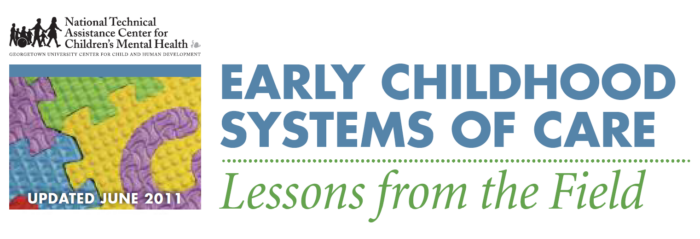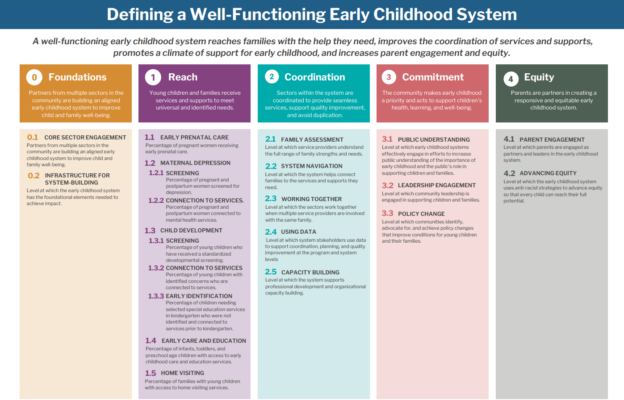Accelerating Action and Gaining Traction in EC Systems Building Initiatives: Applying a System Maturity Framework to Understand Progress and Success

The Early Childhood Comprehensive Systems Collaborative Improvement and Innovation Network (ECCS CoIIN) was a five-year effort to strengthen systems to improve population-level early childhood developmental health and family well-being in 28 communities across 12 states. As ECCS CoIIN systems-building leaders worked with partners to embrace a collective impact framework, develop a vision, articulate shared goals and activities, and identify indicators of progress, there was a growing recognition that a developmental framework of systems-building work is needed to articulate the nuances of each state’s system-building activities, successes, and challenges. Understanding and comparing progress requires a deep awareness of a state’s or community’s starting point and progression – or their system’s “maturity.”
A developmental framework of the progression of each state and community, as well as the collective successes and challenges of systems-level work of the ECCS CoIIN states and communities, was created to define, measure, and articulate “system maturity.” The system maturity framework acknowledges the complexity of systems building while providing a simplified frame for assessing one’s status and acting as a guide toward forwarding systems development. This brief introduces the systems maturity framework; illustrates examples of how the framework supported the work of the ECCS CoIIN teams; outlines the phases for collective impact. Other early childhood system-building initiatives can accelerate their understanding of progress by accounting for the maturity of each system, including where they are starting from and how their planned activities within each level of maturity leads to successes in the next level.
In the context of ECCS CoIIN, system maturity was adapted to mean “a framework to measure the ability of multiple organizations, across a plethora of disciplines and sectors, to collectively work toward system improvements in order to support optimal child and family well-being.” Maturity models generally contain an assessment and a set of levels that correspond to outcomes at each level. The ECCS CoIIN initiative benefitted from application of the system maturity framework as it accelerated the shared understanding of how each system was developing, identified what key activities accelerated progress, and provided a foundation for the collective evaluation.
Levels of the System Maturity Model
- Perinatal (Awareness and Birth)
- Infancy (Discovery and Engagement)
- Toddlerhood (Exploration and Movement)
- Preschool (Testing and Learning)
- Early School Years (Mastery and Expansion)









